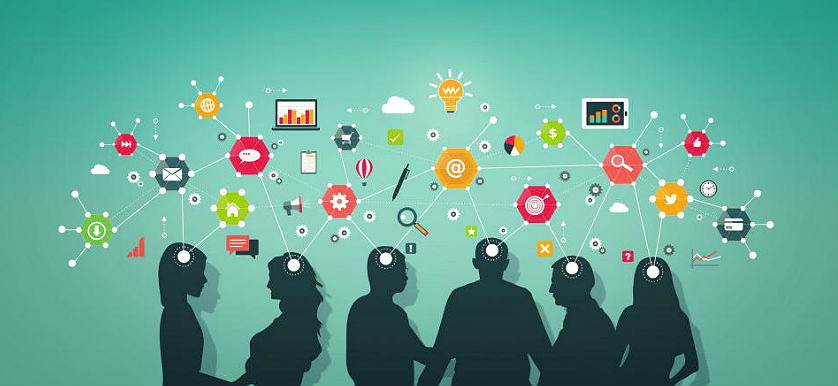Gen Z: How This New Generation Is Changing the Workplace

Generation Z includes people born between 1996 and 2010, following the millennials (whose generational boundaries depend on the source, generally spanning the mid-1980s to late 1990s). These groups have both similarities and differences that employers need to understand before the first wave of Gen Z college graduates hits the job market.
This very aspect is the first difference, since Gen Zers value formal education less than their predecessors, preferring to learn the skills they need on the fly — preferably via YouTube.
Millennials were digital pioneers, the first generation coming of age in the world of cell phones and 24-hour connectivity via electronic devices. Gen Zers are digital natives who suffer phone separation anxiety yet value face-to-face communication.
Having watched their predecessors grow up, enter the workforce, start their own businesses, and begin to shape the marketplace, members of Gen Z can provide special insight for companies into the minds of millennial clients, employees, vendors, industry leaders, and other business partners. You just have to understand them first.
Gen Z vs. Millennials in the Workplace
According to Inc. magazine, 75% of Generation Z would like a job where they could perform different roles within the same workplace. Meanwhile, millennials, shaken by economic and political turmoil now place a greater value on job security than in previous years, according to Deloitte’s millennial survey.
Employers planning to hire Gen Z college grads will have to provide variety and interesting work to earn the loyalty of the latest generation. Like millennials, though, they prefer a modern office space, constant connectivity, flexible work hours, and casual dress codes.
Millennials want to live close to work with easy access to public transportation. Gen Z is likely to prefer the same. Large employers should consider partnering with cities and developers to help these generations gain access to apartments close to the office.

Shifts in Core Values
Generation Z tends to be more competitive than millennials. They value salary and advancement but are less likely to have finished college. This entrepreneurial generation wants to help shape their company’s culture and road map for success.
To harness that enthusiasm, corporations will need to build a pervasive culture that’s in tune with what Generation Z employees highly value, including:
1. Privacy. Younger teens don’t like being tracked and tend to be more reserved on social media than their older counterparts. The challenge for employers will be winning their trust in order to facilitate an open, friendly culture in the office.
2. Entrepreneurial. 72% of Generation Zers still in high school want to own a business. Slightly more jaded than millennials, this group takes a little more convincing to set them in motion, but once committed to a goal, they understand the value of hard work.
3. Multi-tasking. Gen Z kids are expected to take multi-tasking to new heights: Where millennials prefer two screens open at once, Generation Z kids prefer five. They’re likely to be scanning the room while checking their phones while holding a conversation with you. This trait could net additional productivity but also may require some checks and balances in terms of office policies to ensure everyone stays focused on the job.
4. Hyper-aware. Generation Z experiences “4D thinking,” thanks to their pervasive digital immersion. Overstimulation from birth has set their minds are bouncing in so many directions, these post-moderns have learned to become hyper-aware of what’s happening around them. This can be a boon for employers looking for detail-oriented quick starters.
5. Technology-reliant. Millennials became addicted to tech as they grew up, but Generation Z started out that way. Technology is as important to them as air and water. This can be a concern if employees spend too much time on social media and not enough on actual work, so this group may require stricter policies regarding internet usage for personal reasons.
Modern Offices
Here are some tips for office transformations that can help companies recruit and retain millennials while preparing for the next generation to fill in the ranks.
- Gen Zers and millennials both value a collaborative workplace that’s fun yet productive. Quiet areas and noise-canceling headphones can allow employees to concentrate on complicated projects without giving up the convenience, creativity, and camaraderie of more open workstations.
- Modernized offices with open floor plans, shared worktables, and tons of tech is bound to attract Gen Z employees. In addition, both they and Gen Y crave natural lighting, informal meeting areas, comfortable office furniture. Hopefully, dark cubicles that hinder communication and create a stifling work environment are soon to be a thing of the past.
- Incorporating IoT technology in the workplace, such as smart desks that signal when you’ve been sitting or standing too long, can keep workers alert and healthier, and may even reduce obesity.
- Ergonomic keyboards, chairs, and desks, and the advent of voice-controlled apps and devices should help prevent repetitive-motion injuries.
- Amazon’s Alexa for Business and similar technology could revolutionize work as we know it, allowing workers to multitask via voice to update and manage calendars, data requests, and assignments. It can also streamline conference calls, and report IT requests and facilities issues. The challenge for designers is discerning how to use this technology effectively in an open office where cross-talk can be disruptive.
Connecting to Millennial Business Owners
Millennials were the first generation to share characteristics with peers around the world as the Internet transcended borders. Generation Z is composed of global citizens who communicate with international peers even more fluidly — a fact which should appeal to millennial business owners, as these two generations can relate to each other more effectively than older groups.
Digitally tethered millennials and Gen Zers can benefit employers in the following ways:
- Modern businesses are smart to take advantage of Instagram, Facebook, and other social media to improve business relationships. Millennials are comfortable in this area, but Generation Z was born into a world where tech-savvy is a matter of survival. Hiring employees from both groups can help companies stay better connected to millennial business partners and clients.
- Millennial clients prefer companies that intuitively employ technology to enhance customer experience, so millennial and Gen Z thought leaders and account managers can be extremely effective in forging lasting relationships with millennials inside and outside the organization.
- The millennial buyer gets much of their information through blogs, videos, podcasts, and social media, which makes it harder to attract and retain their interest if you don’t follow relevant industry information in the digital space.
Understanding the core values of Generation Z and how they can help or hinder relationships in the office is a valuable exercise for all employers.
This new generation promises to help formulate a more connected workplace in terms of technology & relationships and can provide special insights into the future of the marketplace and workplace.
Image sources:

Tags: Employee Engagement, Employee Motivation, Individual Performance





